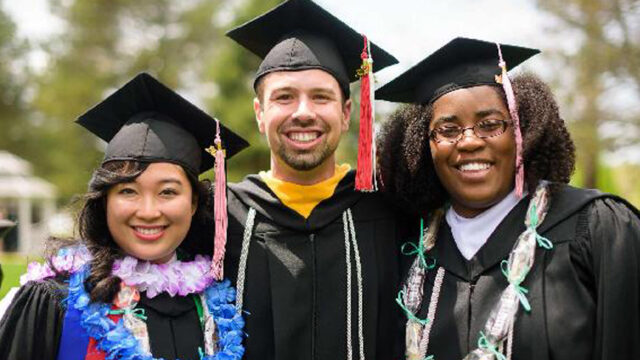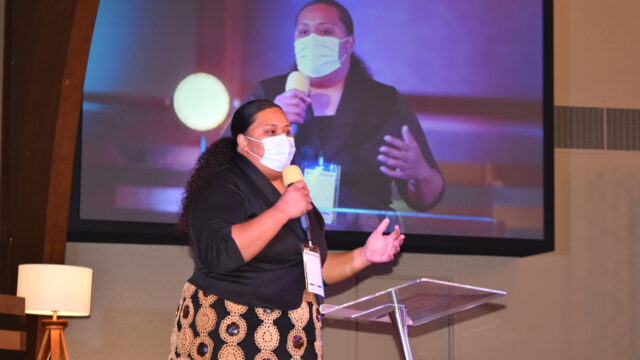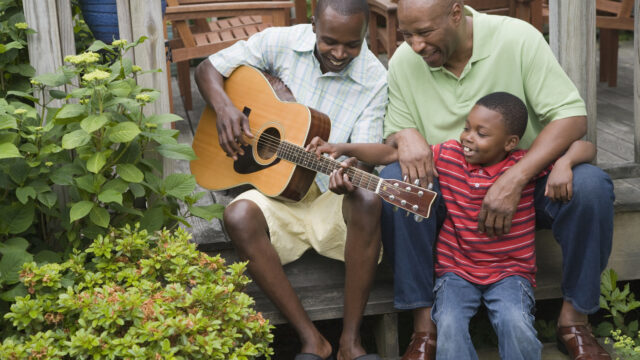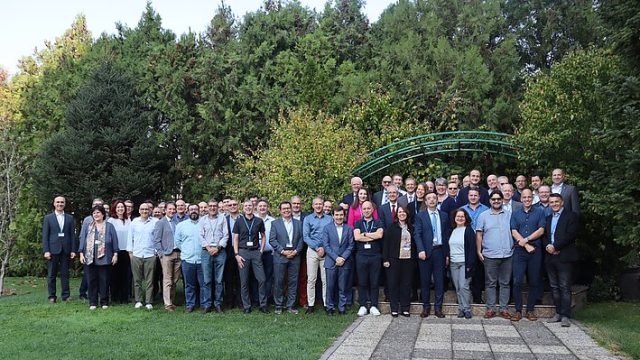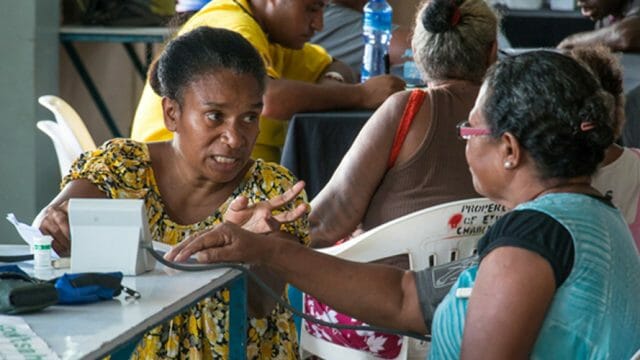Self-hatred is not God’s intention for us. How can we battle it?
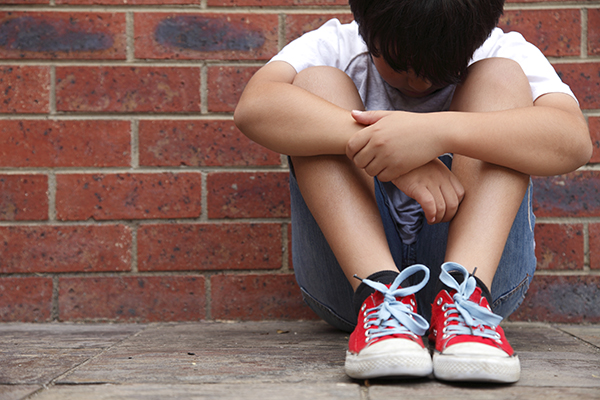
A few years ago I went into counseling. I had blown up at my then 3-year-old son and realized I had an anger problem. I remember him looking up at me in complete terror. He was visibly shaking as his eyes welled up with tears. It reminded me of the look I would often give my father when I was about my son’s age.
My Backstory
Through therapy I learned I had a much deeper problem than just anger outbursts. I hated myself. This self-hatred manifested in anger outbursts, addictive behavior, and overall low self-esteem. I hated my body, my heritage, my personality, and just about everything. I also learned I had hated myself for a long time.
I grew up in New York as a first-generation immigrant. I was the only Spanish-speaking child in my elementary school in Chappaqua, and I didn’t fit in because I didn’t know the language. We were also the only family that lived in one house with five other families. I wished my skin color was different or that my parents were different or that at least I could learn to speak English. Things worsened when we moved to the city of Yonkers. While that city was much more diverse, I was the only Salvadoran among predominantly Caribbean Hispanics. This may not sound like a big deal, but even though we all spoke Spanish the dialects were very different from one another.
I was bullied every day. Kids made fun of me for my accent, my lack of cultural understanding, and the fact that I spoke English properly. At home, things were also very challenging. My cousin, who also suffered under the tyrannical rule of his ex-special forces father, would beat me up constantly. My parents worked up to three jobs at a time to provide for our family.
When I started high school, sports provided a place where I could excel. I was a star athlete in football despite my height, and the cheerleaders had a special cheer with my name. Still, my parents couldn’t or didn’t attend my games. I wanted their approval and their attention.
As my high school years went by, I learned to hide my self-hatred. I masked it with personality and athleticism, but I never dealt with the crippling pain, which I just stuffed down deeper and deeper inside me.
When I was a teenager, the self-hatred manifested in temper tantrums and poor grades. As an adult, the dissonance created by my willful blindness to my self-hatred manifested in a full-blown depression. Now I was a father, and I could no longer hide from the monster who lived under my bed. I would have surely died had God not saved my life.
Hating Ourselves! Why?
One of the reasons many of us hate ourselves has to do with how the people who raised us treated us. When you grow up with the image that you’re “bad,” you’re more inclined to expect bad things to happen to you because you’re a bad person who deserves bad treatment. This can affect every aspect of your life.
In relationships, you may expect partners to be unfaithful to you because you do not deserve fidelity. Everything someone says to you can be interpreted as negative because you expect bad things to just come your way. At work, you assume the intentions of your coworkers to be negative. This can lead to higher levels of stress and anxiety.
Another reason why people hate themselves has to do with how those who raised them spoke about themselves. If your parents or caretakers were overly critical about themselves, this can create a negative inner voice that informs everything you do. One of my sons looks a lot like me. I spent some time speaking very negatively about my body. My wife suggested that I learn to love my body since my son has the same body and he will relate to himself the way I relate to myself. She was right. Negative self-talk can creep in when you least expect it and can be very harmful.
A third reason has to do with growing up feeling like an “other.” For example, if you are the only Hispanic person in a particular school or your community, this can lead to self-hatred because you begin to hate the fact that you don’t fit in. This is profoundly rooted in our need to be loved and accepted. When loving acceptance is missing it can leave us feeling disconnected.
I often have seen people appropriating cultures or personalities just to feel accepted.
To live an authentic life, we need to brave the uncomfortable reality that we may not be accepted. This is particularly true in situations where the otherness is societal—where the standard for being “normal” is established by an entire group or tradition. This can be especially harmful since the person has no reference to an experience of things being different or better.
And then there’s bullying. When we’re bullied for being different, this can lead to self-hatred and even self-inflicted harm. This is particularly the case if the protective factors of a stable home and a solid supportive community are not present.
What does a person do when they feel rejected at every turn? Quite often they learn to hate themselves as well. This self-hatred is the catalyst that leads to causing someone else harm.
Loving Ourselves! How?
The road to healing and recovery is not simple, but there are ways to make progress in that endeavor.
- Take care of yourself as if you were someone you loved.
If my wife or kids are sick, I get the medicine and make them the food they want to eat. I make sure they rest and drink plenty of liquids. I help them get to the bathroom and look for other ways to make things easier for them. If they get hurt, I bandage their wounds and help them manage the pain. I then asked myself how I would take care of my kids or my wife if they were depressed, anxious, lonely, or scared? I would be tender. I would listen to them. I would look for ways to help them heal. So, I started to do the same for myself. I wrote down what I felt and began to find ways to feel better.
- If you can, work on your relationship with your father or mother.
I began to work on my relationship with my father because much of my trauma came from my broken relationship with him. When I was in therapy for my anger management and severe depression, my relationship with my father was a deep pain point for me. I didn’t know where to begin, but I decided to start as if we were meeting for the first time. I began looking for opportunities to get to know him better. What was he like? What did he like to do? How could I help him achieve a dream or a goal? When I looked at my father in a different light, I found a broken man who needed love and who deeply loved me.
- Learn to say no.
For years I was addicted to praise. I loved to hear people praise me and talk about my “greatness.” To achieve this, I always said “Yes!” to people. If there was anything someone else needed, I was there. If there was anything someone asked of me, I would do it in a heartbeat. This, however, would leave me physically and emotionally depleted. Now I’m saying yes to myself, to my self-care, to getting more sleep, and to spending time doing things I enjoy. I may not please everyone, but I’m someone worth loving, and I must take care of myself to love myself.
- Know that you are not your thoughts.
Learning to regard your thoughts as ideas and not absolute facts will help you heal. This was initially challenging for me, but it became much easier with time and practice. The incredible thing about each of us is the fact that we can think about our thoughts. Thoughts come and go, but we decide which ones are welcome or not. A good technique is to think of your thoughts as though they were statements from someone else. You would not accept someone criticizing or saying something negative about you. Your thoughts should be treated the same way.
- Remember that you are not your feelings.
“Feelings are our emotional pain and pleasure sensors that provide crucial information about what’s going on in our minds,” says psychiatrist Dr. Torben Bergland. “We should always listen to our feelings and notice what they say. Our feelings tell us something important about ourselves, but they do not always speak the truth. Therefore, we must think before we act based on them.”* It’s not the wisest course of action to act on feelings alone, especially without considering all the ramifications involved—but our feelings do speak to us. If they’re telling you negative things, just like with negative thoughts, you don’t have to give them an ear.
Learning to love myself has not been easy, but I’m learning that I’m wonderful and have intrinsic value. We are all worthy of love—not because of something we’ve done or haven’t done, but because our lives all matter, especially to the One who gave us life.
* Dr. Torben Bergland shared this statement in a personal e-mail.


